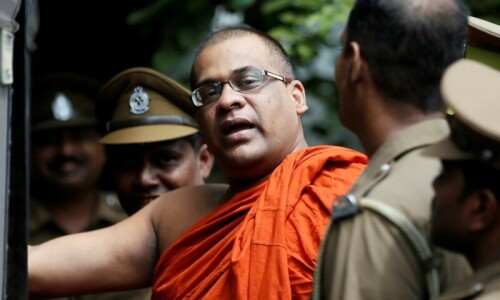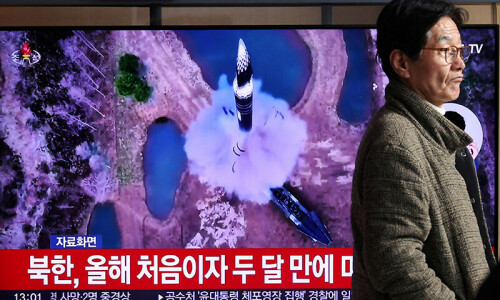DHAKA, July 8: Bangladesh’s military-backed government is ready to free former prime minister Khaleda Zia so she can get medical treatment abroad, the country’s interim leader said in comments published on Tuesday.
Fakhruddin Ahmed said the government would extend the “same gesture” that it extended to Zia’s rival Sheikh Hasina Wajed, who was released last month as part of a deal to avert a boycott of general elections by her party.
“Sheikh Hasina was released through a legal process for her treatment abroad and the government has issued notification in this regard,” Ahmed was quoted as saying by the private UNB news agency.
“If she (Khaleda) desires, the same gesture will be extended to her — there is no hesitation about it,” Ahmed said in Kuala Lumpur, where he is attending a summit of the D8 group of developing nations.
Zia, who has been detained since September last year as part of a government crackdown on graft, has repeatedly said she would rather stay at home and treat her troubled knees and acute arthritis in local hospitals.
The two-time former premier has demanded that the government should instead send her two sons — also detained on graft charges and declared sick by courts — abroad for better treatment.
The secretary general of her Bangladesh Nationalist Party (BNP), Khandaker Delwar Hossain, has accused the government of trying to force Zia out of the country in the name of her getting treatment abroad.
Last month the government freed Sheikh Hasina and allowed her to travel to the United States for ear treatment.
Hours after her release, Sheikh Hasina led her Awami League to a meeting with the government and announced that the party would take part in general elections scheduled to be held in December this year.
The current government came to power in January 2007 after a state of emergency was imposed and polls cancelled.
The administration is keen to ensure the participation of the Awami League and BNP -- the main parties in Bangladesh -- so the polls due later this year will be credible.
Both parties had refused to hold talks to plan for an election in December, which is aimed at restoring the country to democratic rule, because their leaders have been in detention.
Last year the interim government tried to force both Sheikh Hasina and Zia into exile as part of an effort to clean up Bangladesh’s corrupt political system, but they refused to leave and were put on trial instead.
—AFP















































Dear visitor, the comments section is undergoing an overhaul and will return soon.